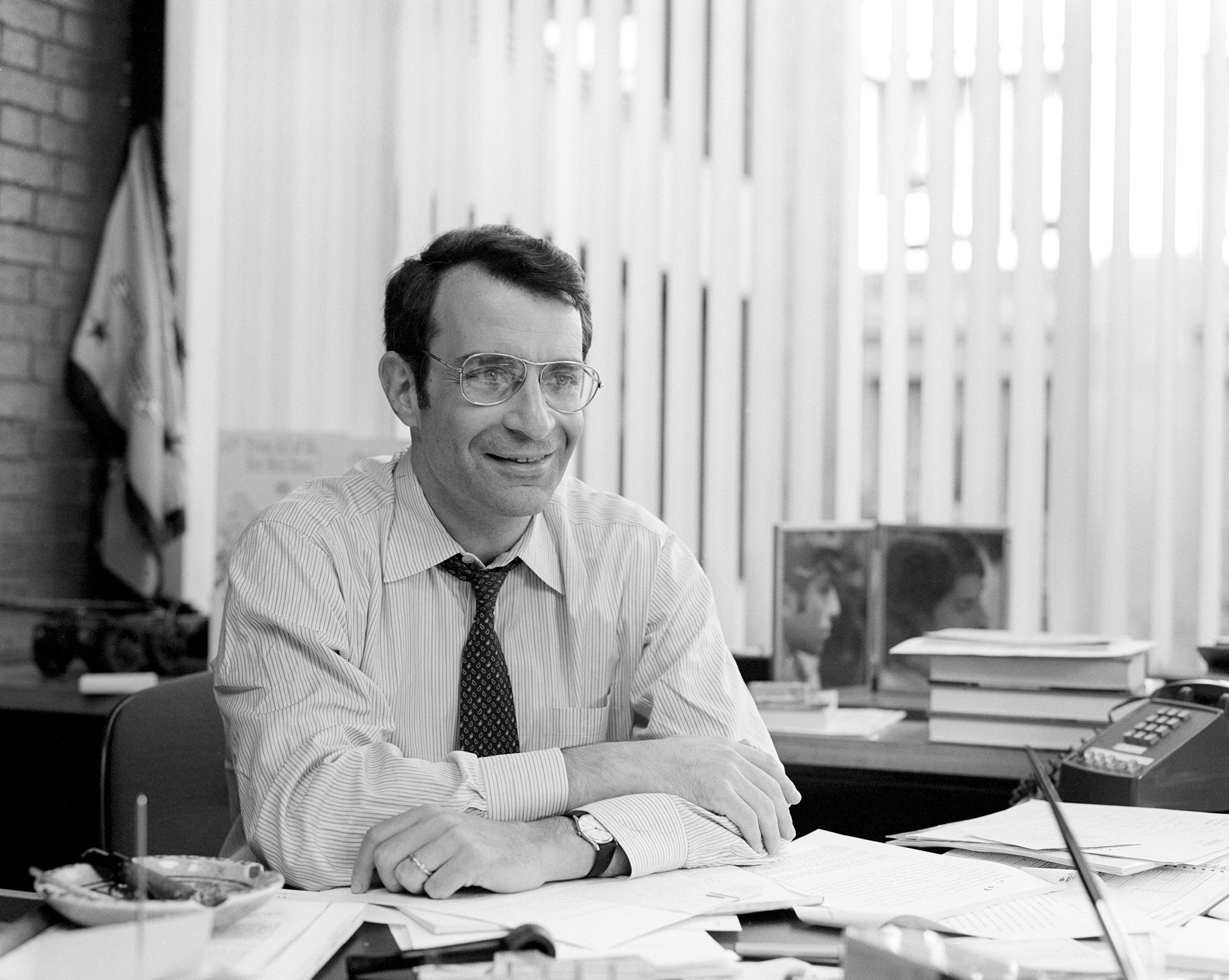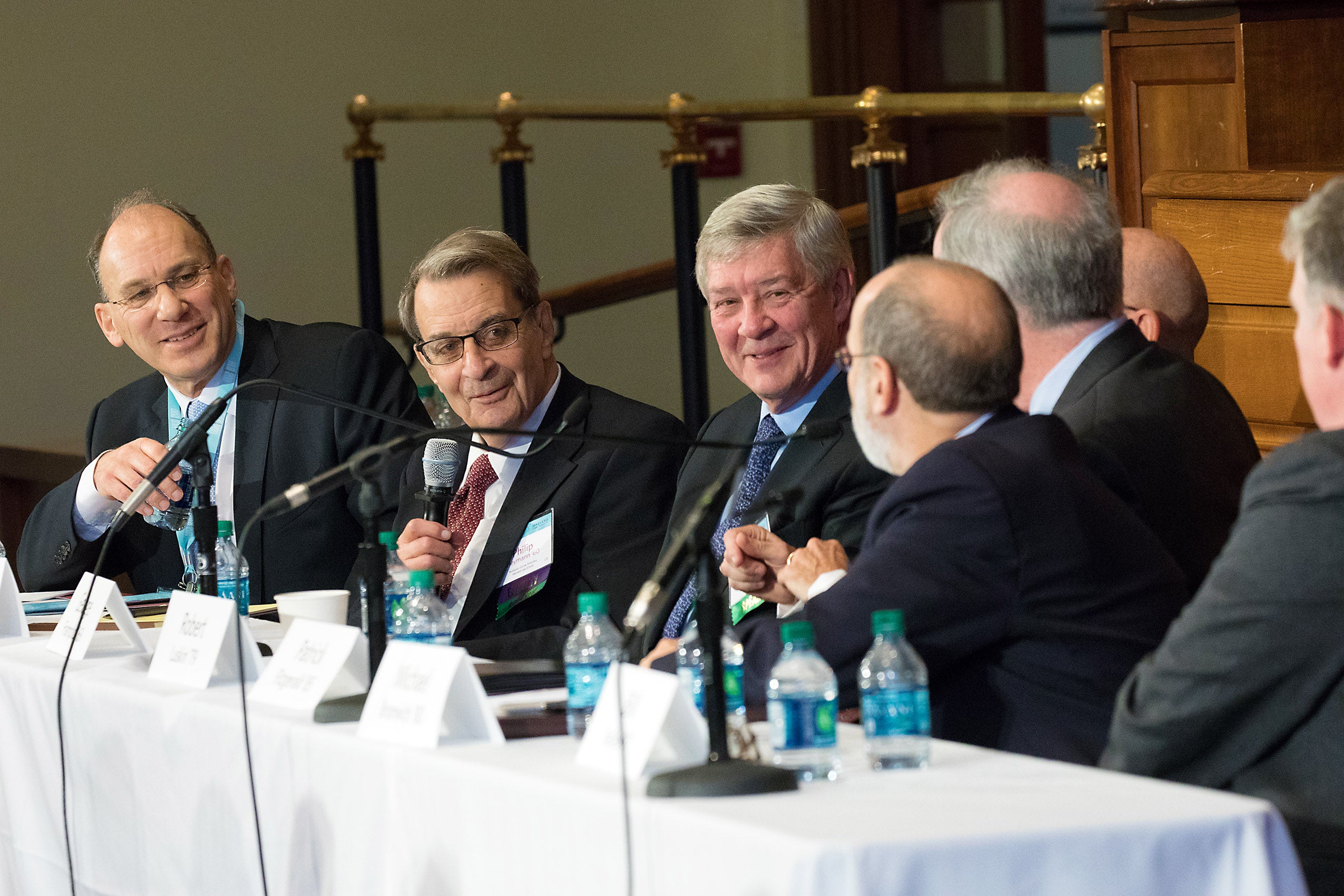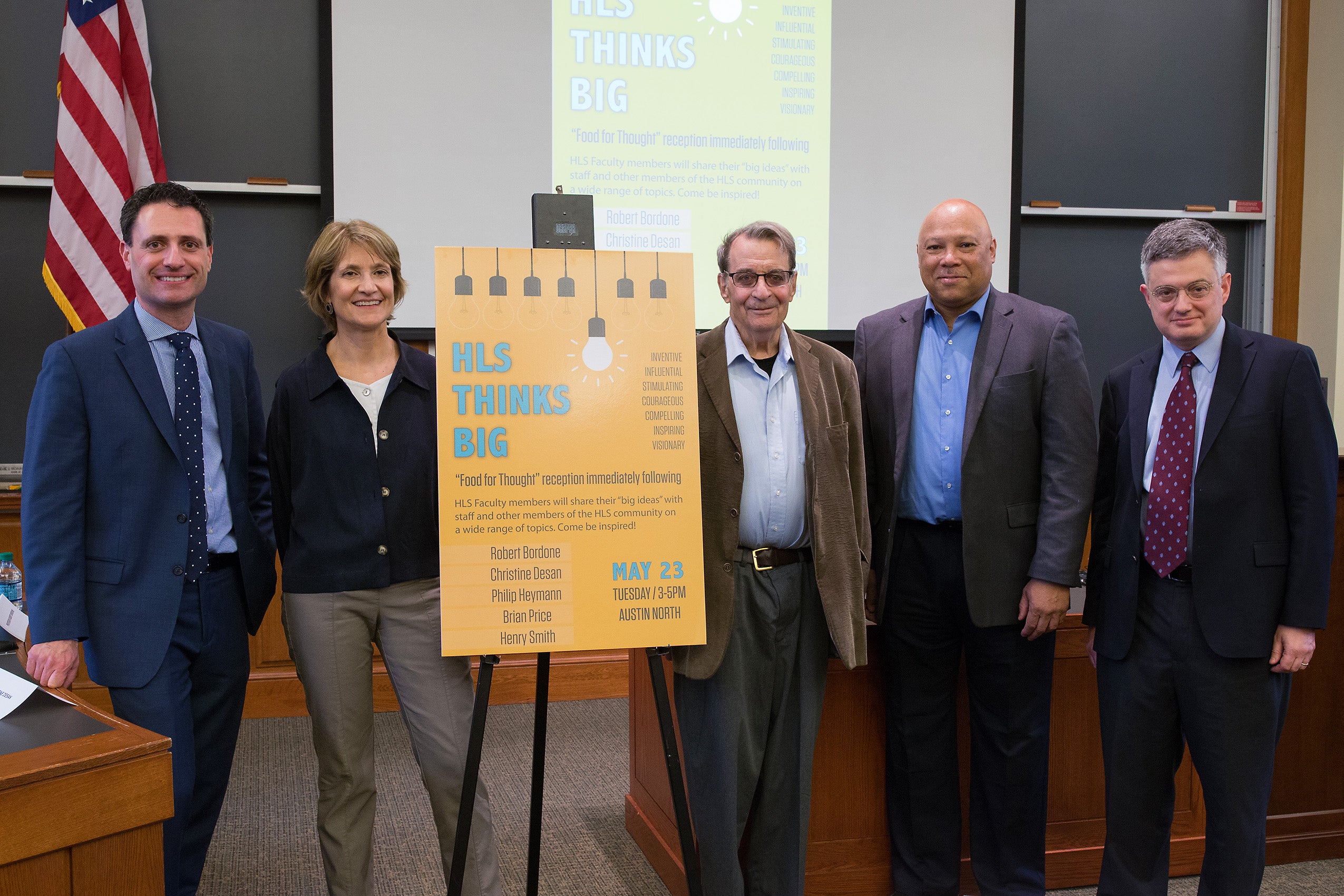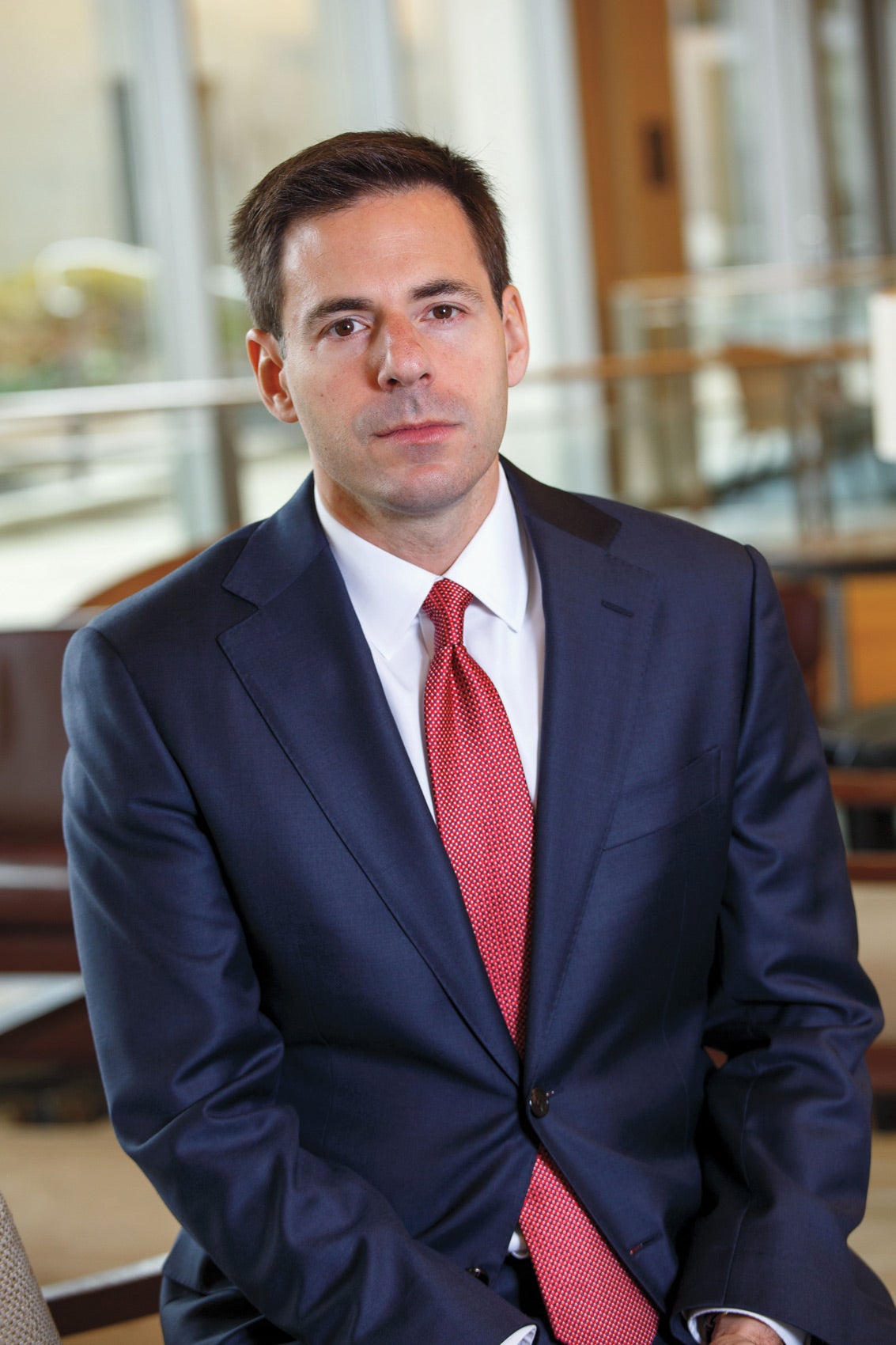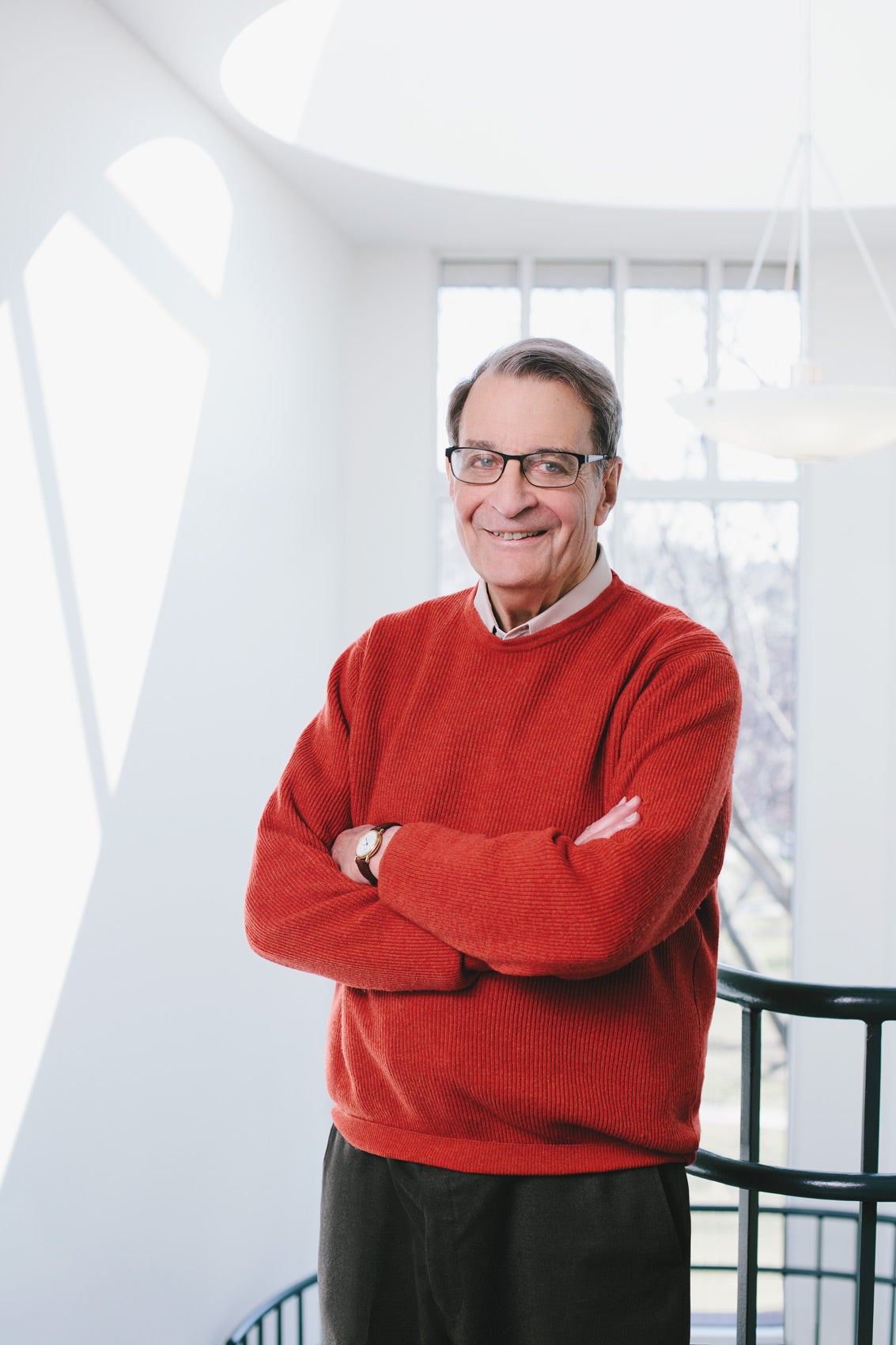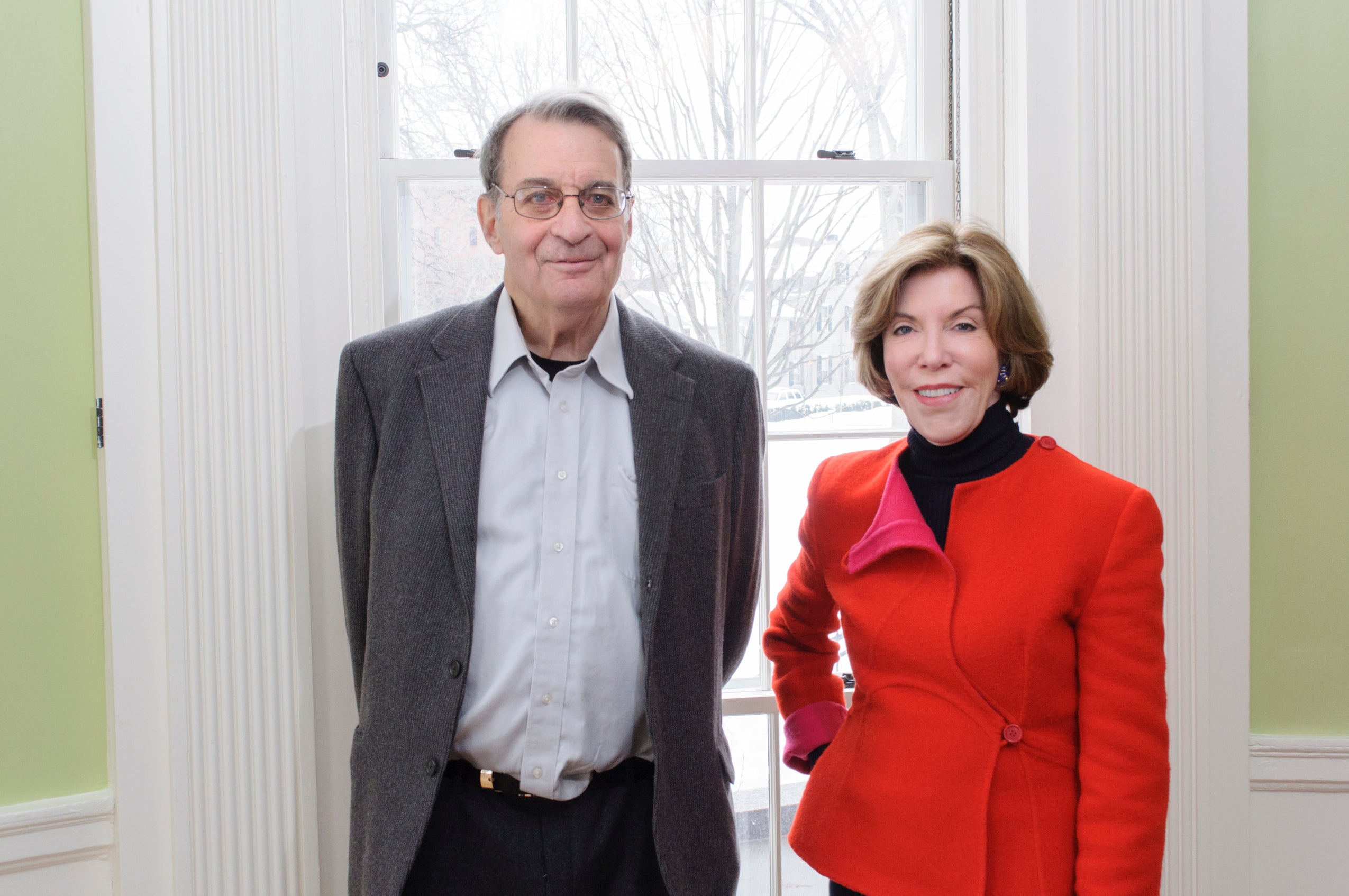People
Philip Heymann
-
Faculty Books in Brief: Winter 2019
January 29, 2019
With the increased use of a massive volume and variety of data in our lives, our health care will inevitably be affected, note the editors of a new collection, one of the recent faculty books captured in this section.
-
With Whitaker, another test of the rule of law
November 27, 2018
An op-ed by Philip Heymann and William Ruckelshaus. The Department of Justice has concluded that the president acted legally in appointing Matthew Whitaker as acting attorney general. But it has declined to comment on the illegality of President Trump putting Whitaker in charge of supervising the special counsel investigating Russia’s role in the 2016 presidential election. We were there more than four decades ago, dealing with the Watergate scandal.
-
An op-ed by Philip Heymann and Charles Fried. Dear Attorney General Jeff Sessions and Deputy Attorney General Rod Rosenstein: Our experience over many decades of working in the Department of Justice tells us that a career service — sometimes called a civil service system — plays an essential role in our justice system. It often provides the necessary conditions of wise policy: the knowledge of history and of operations in each of a multitude of areas regulated in some way by federal law; the awareness of the stakes and beliefs of those private citizens who work in those areas; the integrity to tell the truth as a career official sees it, and to do that without political spin; and the independence to speak frankly even when disagreeing with those who can control their careers. For over a century these conditions have been guaranteed by rules of the federal career services forbidding hiring or firing for political reasons and now expanded to guarantee procedural protections against political abuses in revoking a security clearance. These protections are essential in all aspects of federal employment; they are especially necessary for the investigators and prosecutors pursuing a possible obstruction of justice by a superior.
-
Deputy Attorney General Rod Rosenstein has suddenly found himself in the middle of Washington's biggest political firestorm, and there are growing signs that he may not be able to avoid being consumed by it. Rosenstein is the man responsible for overseeing special counsel Robert Mueller’s investigation into possible collusion between the Trump campaign and the Russian government...Despite these recent controversies, Rosenstein has long been considered an apolitical straight shooter by those who’ve worked with him....Philip Heymann, Rosenstein’s former professor at Harvard Law School and later his colleague, told me. “He says what he thinks, but he’s always fair.”
-
Forged in Waco’s fires: The FBI and religion scholars reflect on their 25-year relationship
November 29, 2017
After a 1993 fire, accidentally triggered by federal authorities, killed 75 members of an obscure Christian sect near Waco, Texas, one of the “lessons learned” was this: Call in religion experts in a crisis where faith is a factor. This month, nearly 25 years after the debacle now simply referred to as “Waco,” FBI officials and scholars from the American Academy of Religion gathered at Harvard Divinity School to reflect on how the crisis in Texas led to a new relationship between them – and on the challenges ahead...After 51 days, law enforcement moved to end the standoff by force but had “no qualified knowledge of how highly religious people would respond to the storming of (their) building,” said retired Harvard law professor Philip Heymann. As deputy attorney general at the time, he authored a report in the aftermath of Waco that emphasized the need for seeking out religious expertise in dealing with confrontations.
-
How Jeff Sessions plans to end medical marijuana before the year is over
November 27, 2017
New York is one of 29 states (plus the District of Columbia) that have legalized medical marijuana––a trend that 94 percent of Americans support, according to an August Quinnipiac poll. But on December 8, all of that could begin to change. Congress has until that day to decide whether to include the Rohrabacher-Farr Act (also known as Rohrabacher-Blumenauer) in a bill that will fund the government through the next fiscal year...In May, Attorney General Jeff Sessions pushed back against the bill when he sent a strongly worded letter to Democratic and Republican leaders in Congress, asking them to oppose protections for legal weed and allow him to prosecute medical marijuana..."He’s old fashioned and very conservative," said Philip Heymann, a Harvard Law School professor and former Justice Department official for the Kennedy, Johnson, Carter and Clinton administrations. "Literally seven years ago, maybe eight years ago, marijuana was thought to be a very dangerous drug. Why would he focus on this issue? Because he’s seven years out of date."
-
Philip B. Heymann: The Art of the Cover Up: Watergate
November 14, 2017
A research paper by Philip Heymann. A Special Prosecutor is appointed and empowered to find the facts about a crime by a high official. For obvious reasons, the appointment is an invitation to dramatic and public political battle. Even reliable accusations of crimes by a President—and the threat to the rule of law that ignoring them would pose—are fought with all the powers of his Administration.
-
From Watergate to Russian election hacking, former special prosecutors reflect on the role of independent counsels
November 13, 2017
As part of Harvard Law School's bicentennial summit, a panel, “Special Prosecutors and Independent Counsels: Investigating the White House and the President of the United States,” gathered six Harvard alumni and faculty members who’ve been involved with nearly every high-profile investigation, from Watergate to Whitewater, to the leaking of Valerie Plame’s identity.
-
A Federal Judge Put Hundreds of Immigrants Behind Bars While Her Husband Invested in Private Prisons
August 28, 2017
...Mother Jones learned of these prison investments from an independent investigator who was invited by former Deputy Attorney General Philip Heymann to look into the legal case of the Postville meatpacking plant’s manager, Sholom Rubashkin...“The judge shouldn’t have any significant financial incentives for a longer sentence or a shorter sentence, or financial incentives to approve a very large raid or to disapprove a very large raid,” says former Deputy Attorney General Heymann, now a professor emeritus at Harvard Law School.
-
From Watergate to Russia-gate
June 29, 2017
An op-ed by Philip Heymann. Denying that there was any evidence of his committing an obstruction of justice, President Trump has issued thinly veiled threats to fire Special Counsel Robert Mueller. Like my mentor 45 years ago at Watergate, Archibald Cox, Mueller must take the Department of Justice investigation he heads wherever the relevant facts lead. Like Attorney General Elliot Richardson, Rod Rosenstein is right that, as deputy attorney general, he cannot agree to terminate the special counsel’s investigation without good reason simply because the continuing investigation makes the president uncomfortable or nervous.
-
HLS thinks bigger than ever
June 8, 2017
Each May since 2011, Harvard Law School has presented "HLS Thinks Big," a TED Talks-style event that invites faculty members to present a "big idea" in front of an audience of faculty, students and staff.
-
Less than a year into the new president's administration, the FBI director was fired. His conduct had been scrutinized before the election, but when the opposition party won, it took months for him to be out of a job. William S. Sessions, fired in July 1993, was until Tuesday the only FBI director dismissed in the middle of a 10-year term. He claimed politics led to his ouster, a view held to this day by some supporters. There are many similarities between President Bill Clinton's firing of Sessions and President Donald Trump's firing of James Comey, as well as many foundational distinctions...Still, "they could have stood by Sessions longer than they did," says Harvard Law School professor Philip Heymann, deputy attorney general at the time. Heymann can’t recall personally lobbying one way or the other but says in retrospect he believes politics were at play.
-
Rod Rosenstein has spent years prosecuting US public officials suspected of wrongdoing. He may soon get a chance to use those skills in the nation’s capital. Mr Rosenstein, nominated for the number two position in the US Department of Justice, is in line to run the investigation into alleged ties between Trump campaign aides and the Russian government, now that attorney-general Jeff Sessions has recused himself from the probe. “He’s stepping into a terrific hot seat, a real hot seat,” says Philip Heymann, who taught Mr Rosenstein at Harvard Law School and supervised him at the DoJ. “These are extremely difficult things to handle well.”
-
An op-ed by Philip Heyman. Last week, President Obama granted clemency to 153 individuals who had been incarcerated under mandatory minimum drug-sentencing laws, bringing to more than 1,100 the number of clemency petitions the administration has granted. “You don’t just try to hammer everybody for as long as you can, because you can,” Deputy Attorney General Sally Yates told the New York Times. That is the right attitude for someone tasked with the fair administration of justice. Unfortunately, Yates and Attorney General Loretta E. Lynch have, for the past year, rebuffed efforts by me and many other former senior Justice Department officials to even discuss another prosecution in which justice fell far short: the case of Sholom Rubashkin, a Brooklyn-born rabbi who was sentenced to 27 years for bank fraud.
-
The hardest legal issue is addressing domestic terrorism
September 6, 2016
By Philip Heymann '63: The perpetrators of the terrorist attacks in Paris, Brussels, San Bernadino, Orlando, and Boston were all on some form of terrorist “watch list.” Although regarded as a danger, the government could not, it generally explained, afford to surveil the suspect’s activities over a long period. He was one of many and each would require many officers for full time surveillance. Continue Reading »
-
Quiet Intelligence
May 10, 2016
For more than seven years, John Carlin ’99 has been at the center of the most sensitive counterterrorism cases, which have often involved tricky technological questions—first as an adviser to FBI Director Robert Mueller and then at the National Security Division.
-
Wise Promoter of Accountable Government
May 10, 2016
For more than half a century, Phil Heymann has served the nation— and Harvard Law School—with distinction.
-
A different kind of drug research: Heymann, Falco on lessons learned from the U.S. ‘war on drugs’
February 23, 2015
HLS Prof. Philip Heymann joined an array of experts at the Radcliffe Institute for Advanced Study for a two-day seminar to explore lessons learned from the U.S. 'war on drugs' and how to use that knowledge to develop better public policies.
